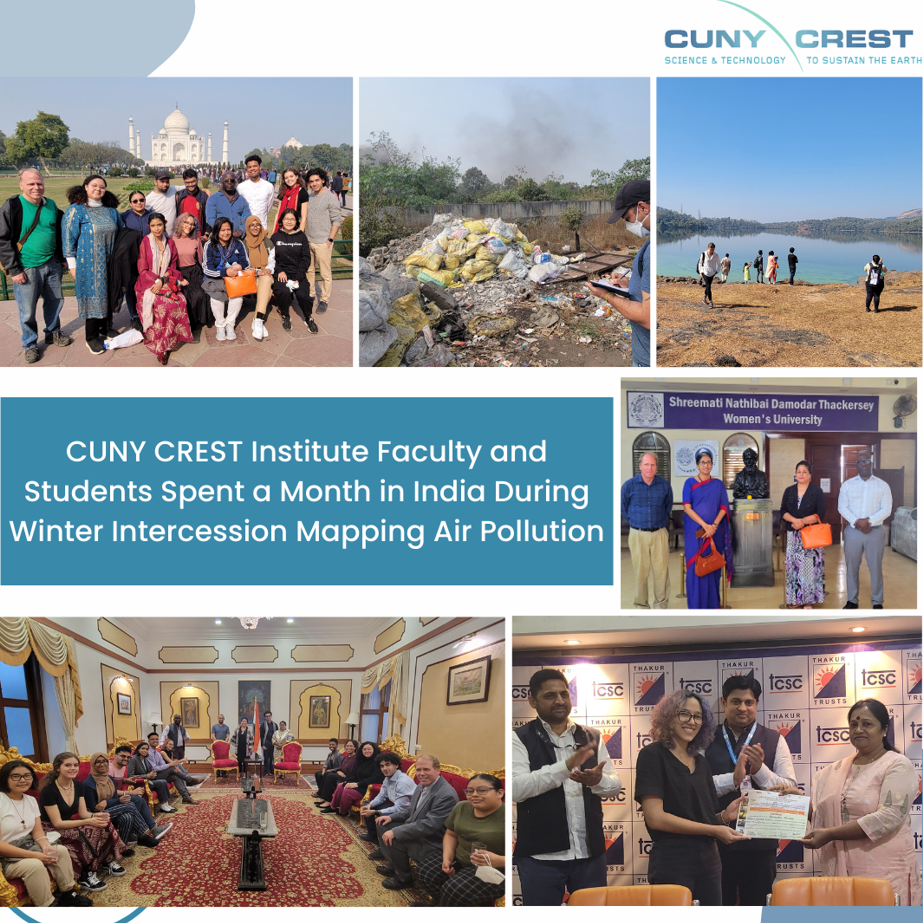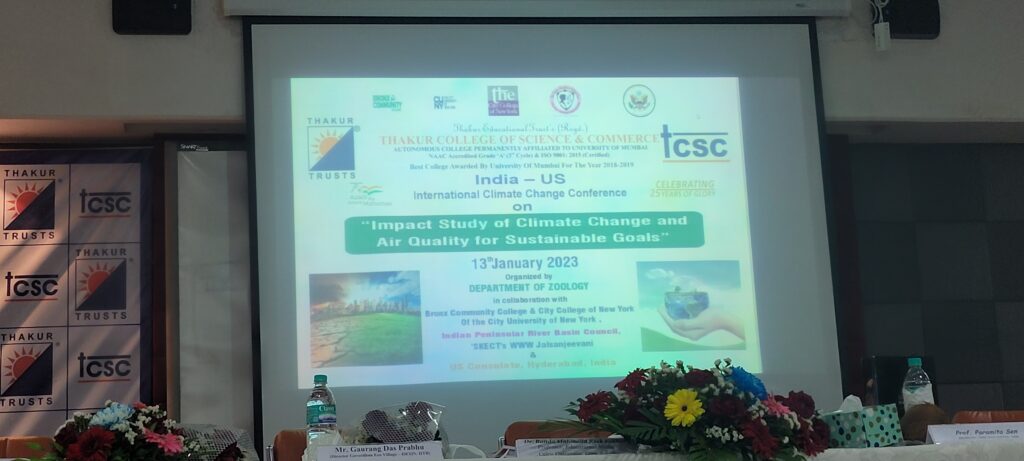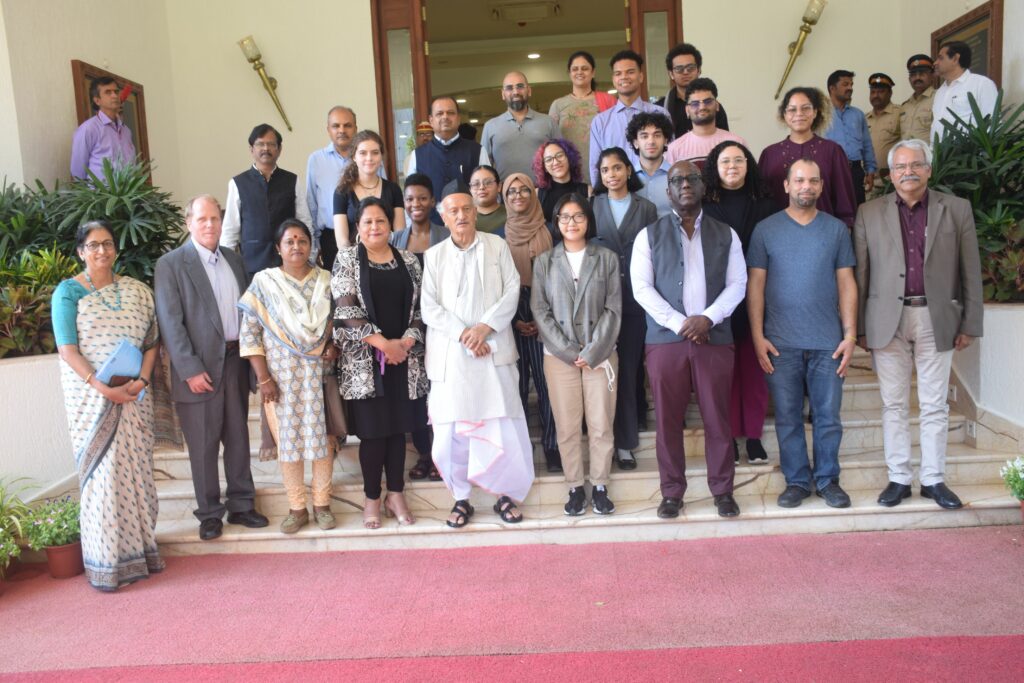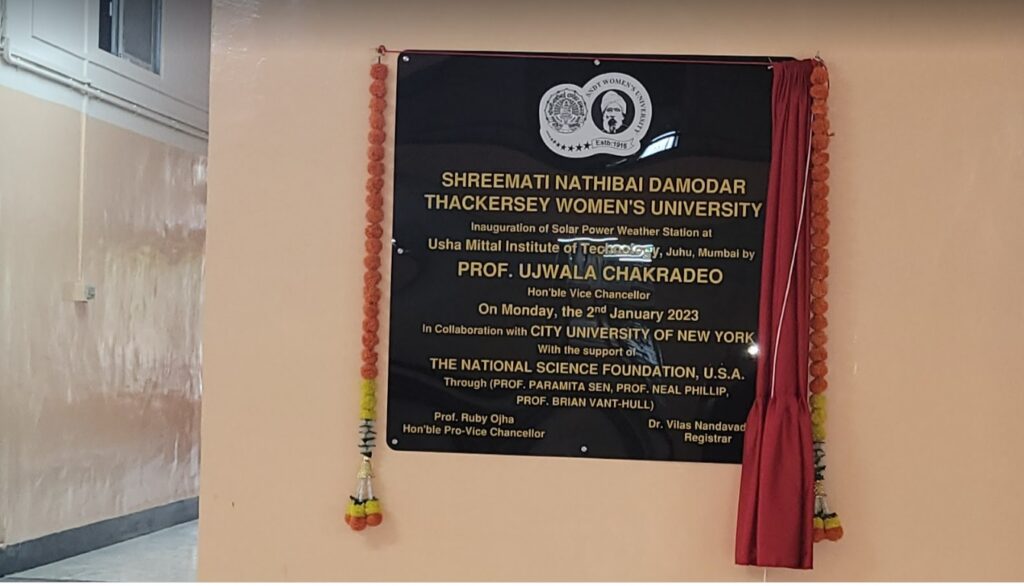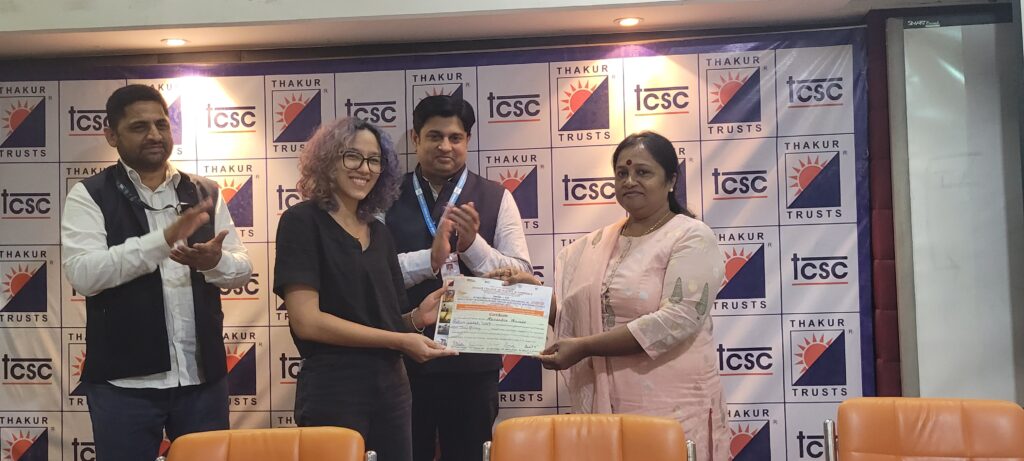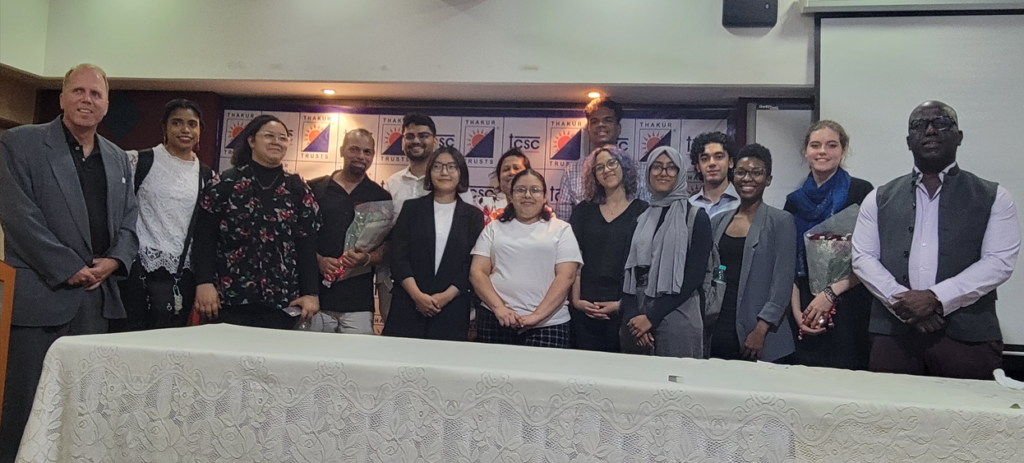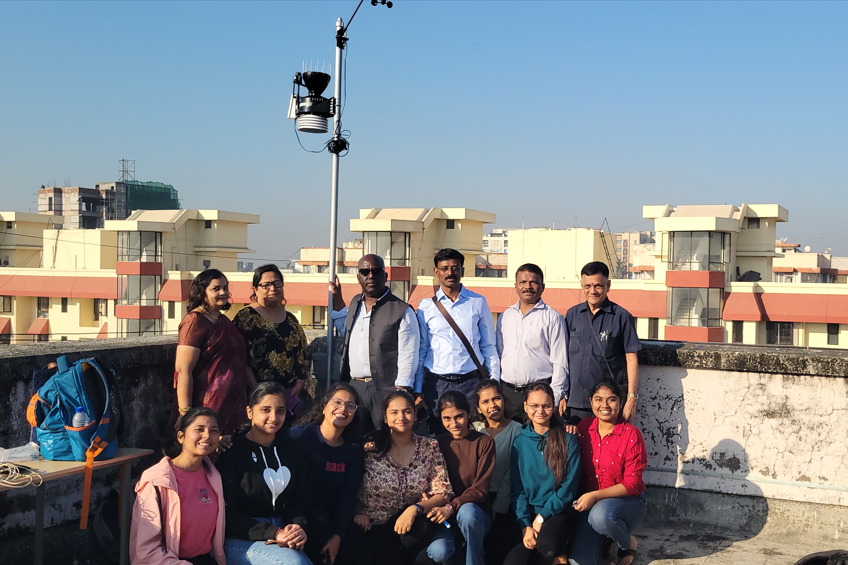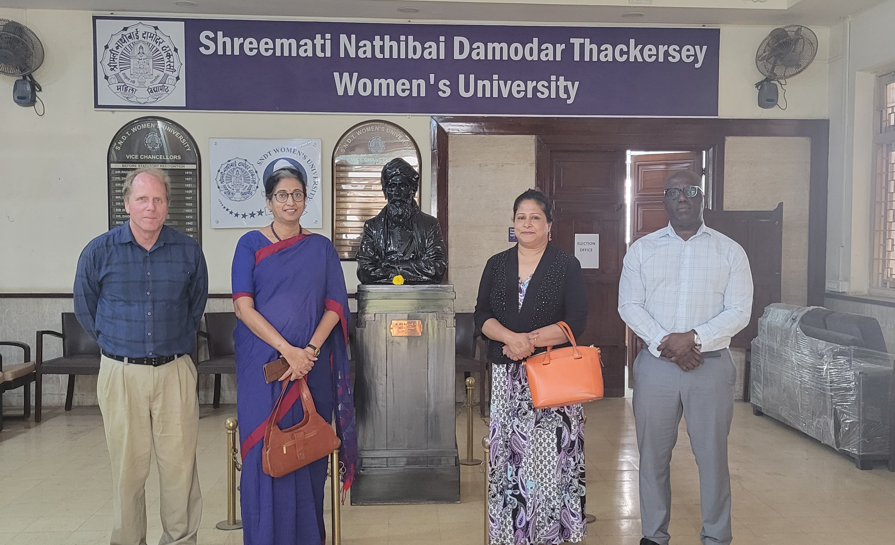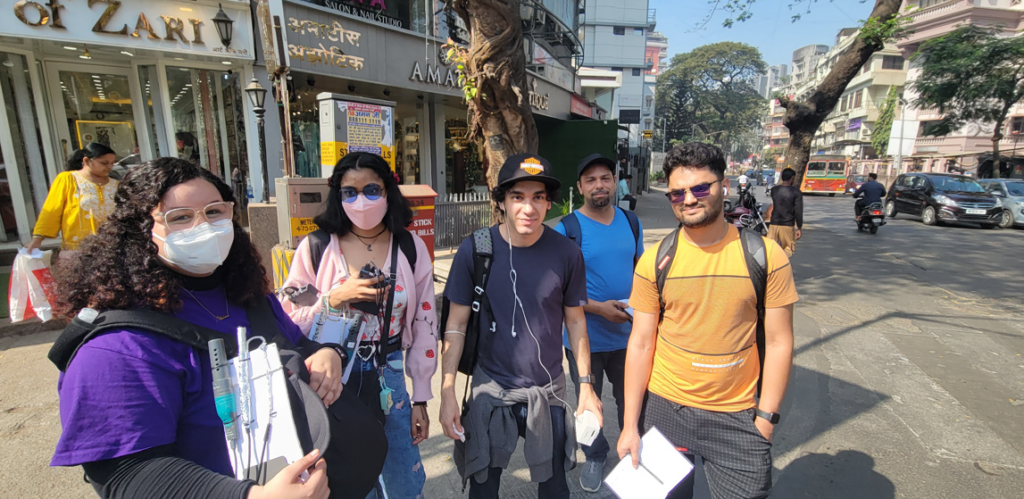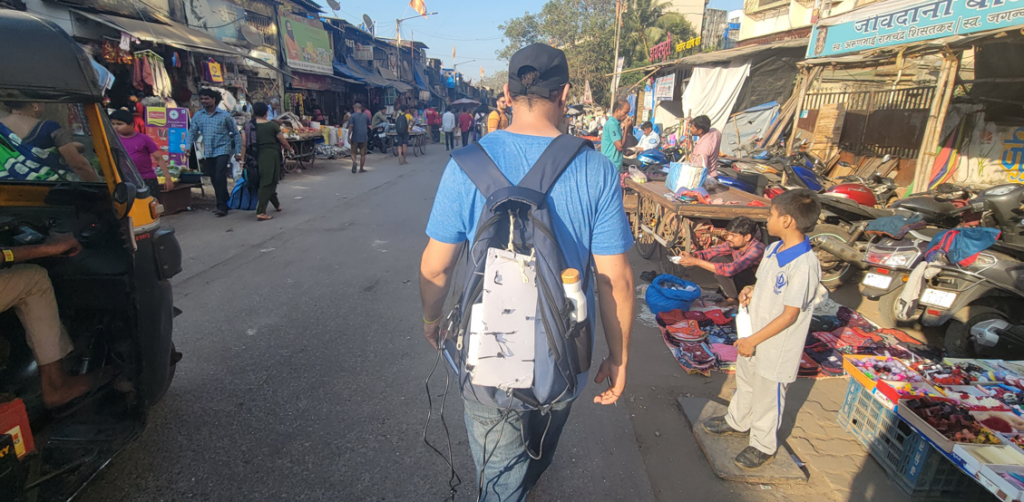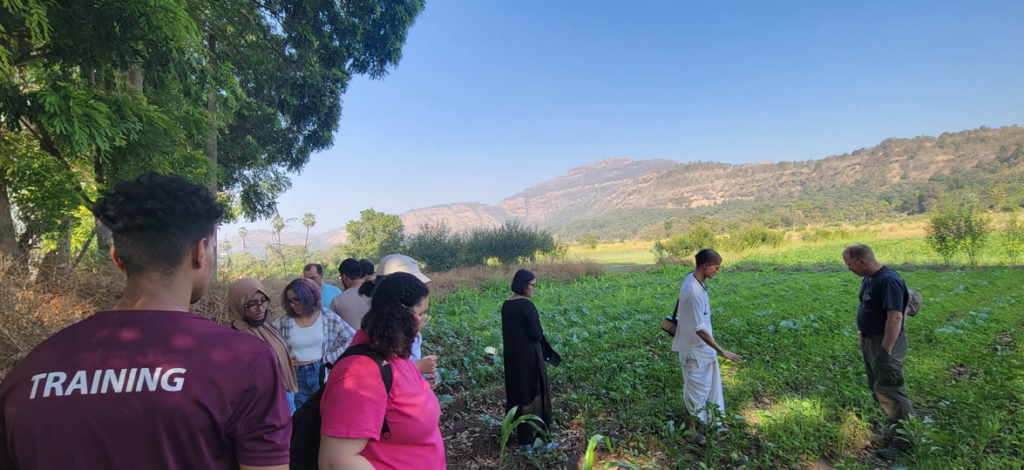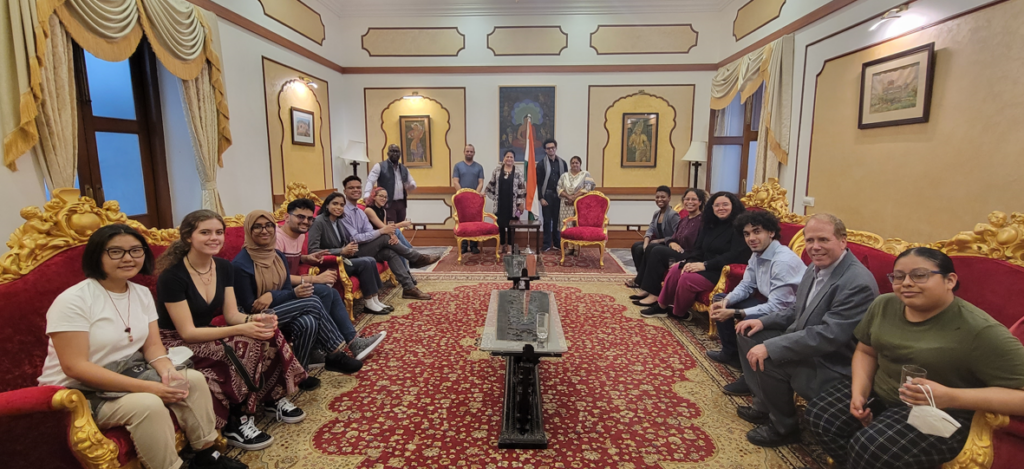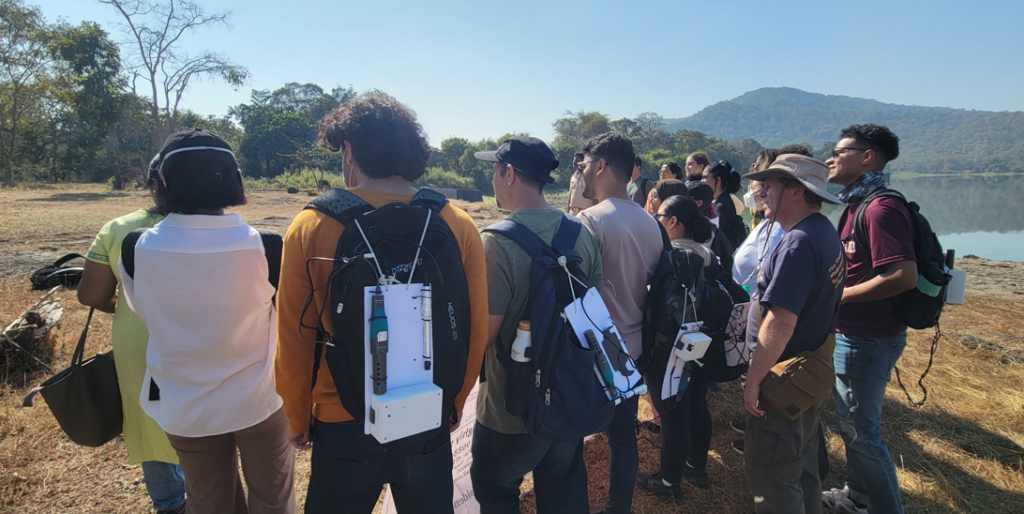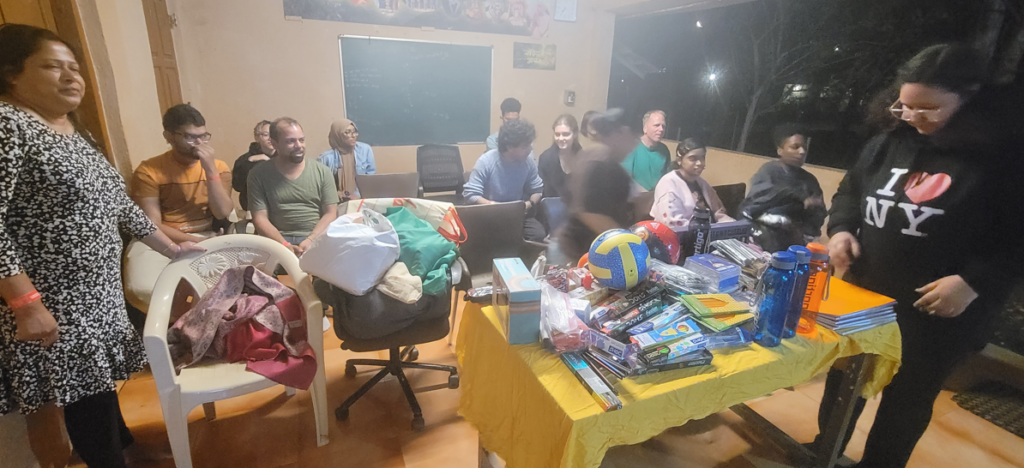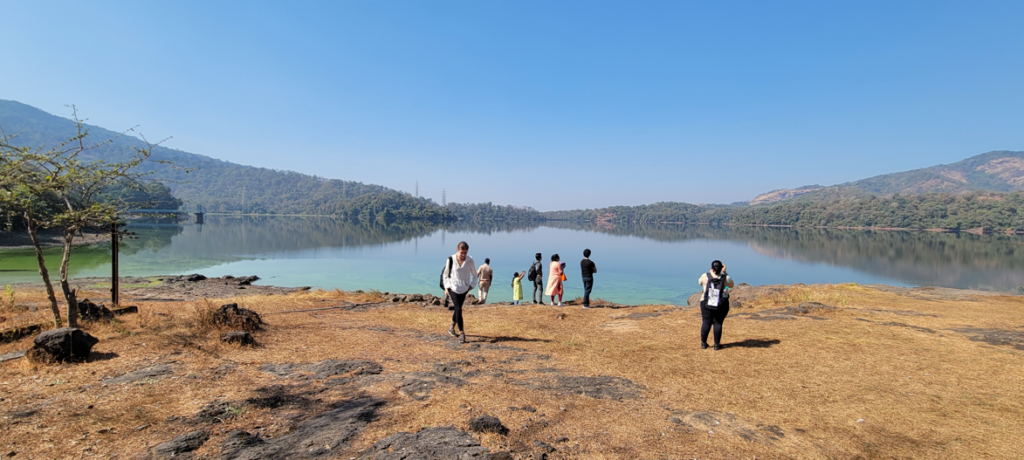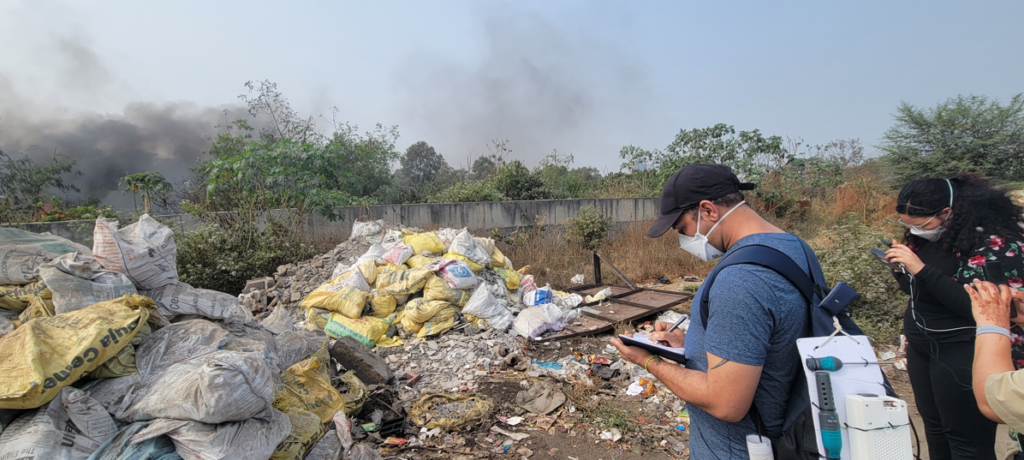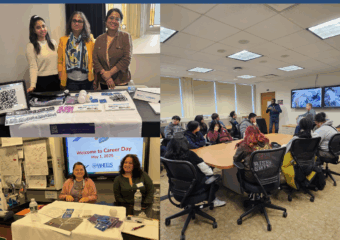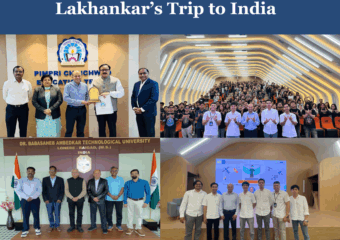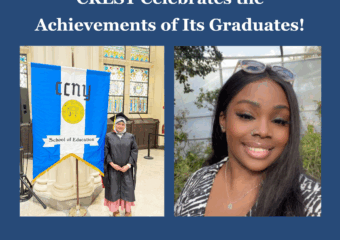CUNY CREST Institute Faculty and Students Spent a Month in India During Winter Intercession Mapping Air Pollution
CUNY CREST Institute Faculty and Students Spent a Month in India During Winter Intercession Mapping Air Pollution
CUNY CREST Institute members Professor Neal Phillip, Chairperson of the Bronx Community College (BCC)/City University of New York (CUNY) Department of Chemistry, Earth Sciences and Environmental Science, Professor Paramita Sen of the same department and Dr. Brian Vant-Hull of City College of New York (CCNY) and 13 CUNY students spent a month in December and January mapping air pollution in Mumbai and New Delhi as part of the 3 year $300,000 National Science Foundation (NSF) Internal Research Experiences for Students (IRES) $300,000 grant award to BCC and CCNY. Prof. Phillip is the Principal Investigator (PI) and Prof. Sen and Dr Vant-Hull as the co-PIs. The 13 students represented 6 campuses (BCC = 5, CCNY = 2, Baruch = 1, City Tech = 1, Hostos = 1, Hunter = 3) and were paid a stipend of $2,100 for their participation in the program.
The CUNY team of students and professors conducted an air pollution research study in underserved communities in Mumbai and New Delhi, two of the most polluted megacities in the world. The CUNY team used LoraWAN sensors which they spent several months helping to design and other sensors mounted as backpack units to map the pollution on a micro-scale in both cities. These GPS enabled sensors could literally tell the pollution block by block as the CUNY team moved by foot through Dharavi slum and other underserved communities in the two cities. The sensor package was designed jointly by the three PIs working with a private US company. India’s prestigious Indian Institute of Technology Bombay and Indian Institute of Technology Delhi were the official collaborators on the NSF grant. The CUNY team also enlisted students from SNDT Women’s University, India’s first and largest university serving women, on the research project.
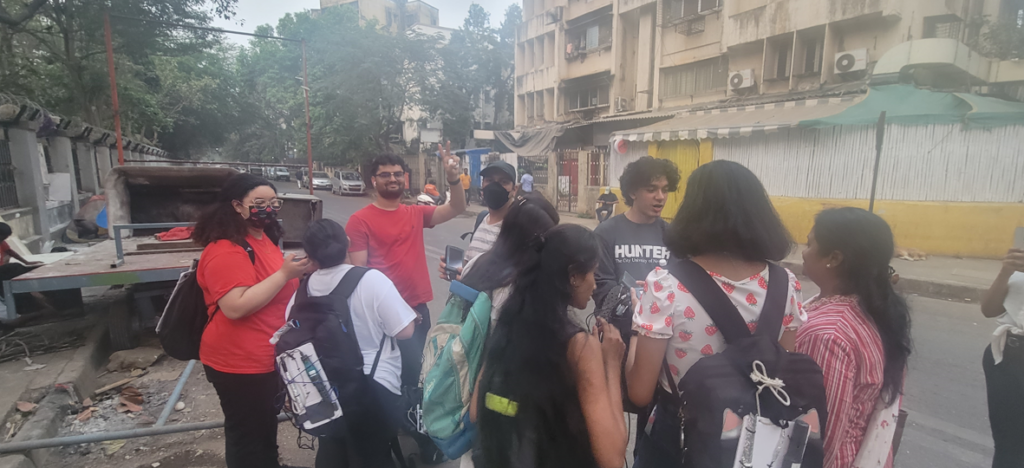
As part of the research project to understand the correlation between air pollution and weather parameters (wind speed, wind direction, temperature, etc.), the CUNY team installed two weather stations in Mumbai. One weather station was installed at the Governor of Maharashtra’s official residence in Mumbai, an Indian national heritage building. The other was installed at SNDT Women’s University, India’s first and largest university serving women. Plaques recognizing NSF, CUNY, and the contributions of Dr. Phillip, Professor Sen, and Dr. Vant-Hull were installed in these two locations.
Professor Phillip, Sen and Dr. Vant-Hull also co-organized an International Climate Change Conference in Mumbai during their trip in conjunction with Thakur College of Science and Commerce. Welcoming address was given by the Governor of Maharashtra Hon. Bhagat Singh Koshyari https://youtu.be/tcb4ciChTVE and presentations by the US Consulate in Mumbai, Mr. Gauragua Das, ISKCON head for worldwide temple development, Mr. Greg Bruce, Order of Australia Medal winner from Australia and keynote address by Dr. Randa Rizk of the University of Cairo, Egypt. The CUNY students and the CREST Institute Faculty presented their air pollution research. There were other presentations from faculty and students from across India. Other participants joined in through Zoom.
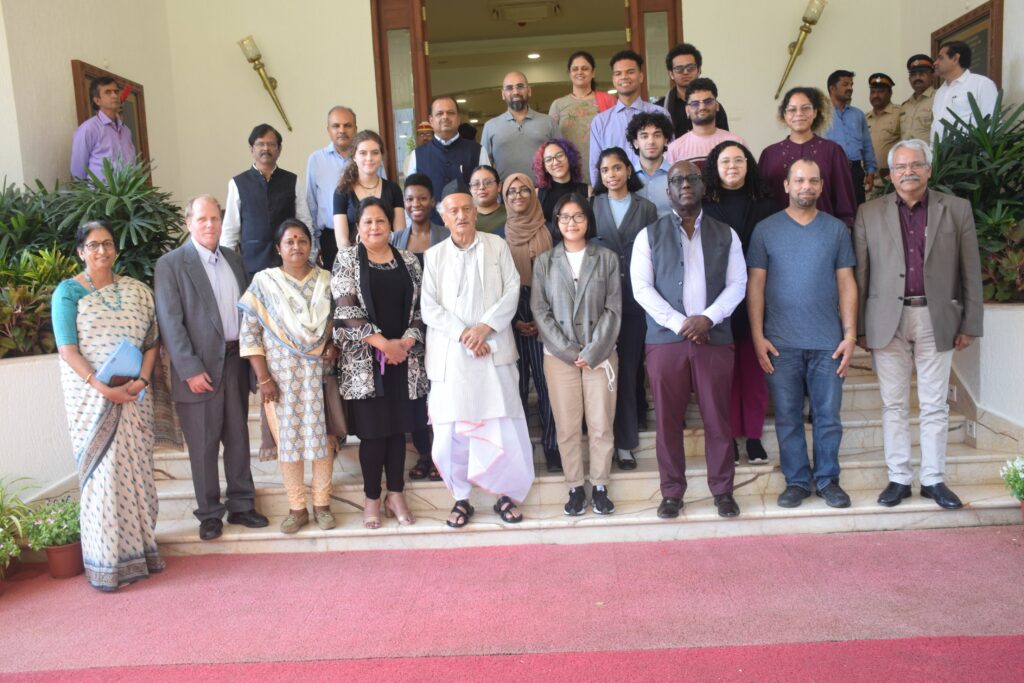
The trip also included a visit to the ISKCON Gurukul orphanage at the Govardhan Ecovillage (GEV) in the rural Palghar district of Maharashtra to upgrade a weather station previously installed by a CUNY Study Abroad group in 2019 led by Professors Sen and Phillip. The CUNY students also donated educational supplies and other gifts to the children and sponsored a special meal and deserts. The CUNY students and faculty also engaged in an impromptu soccer game with the Gurukul kids which delighted everyone, except the ISKCON monks sleeping in nearby quarters. CUNY CREST Institute leadership team led by Dr. Reza Khanbilvardi, Dr. Shakila Merchant and Dr. Tarendra Lakhankar were also hosted by GEV in September 2022. The CUNY CREST Institute members and the students also visited the famed Taj Mahal in New Delhi and all marveled at the beauty of the structure and space after its initial construction some about 600 years ago.
Professors Phillip and Sen had also received a $43,000 public diplomacy grant (CUNY-India Climate Collaborative)from the US State Department/US Consulate Hyderabad, India for a weather station and climate change literacy project in the three states of Orissa, Andhra Pradesh and Telangana in India and had completed Phase I in September 2022. Phase II is scheduled for April 2023 during Spring Break. Prior to their visit to India this Winter, Professors Phillip and Sen have had several preliminary discussions with the US Consulate in Mumbai, who had come to know of their through the US Consulate in Hyderabad. While in India this Winter, Professors Phillip and Sen met with US Consulate Mumbai officials and were awarded a $39,160 Public Diplomacy grant for a similar weather monitoring and climate change literacy project in five states in western India covered by the Consulate. This project will take place in July/August 2023 with CUNY students.
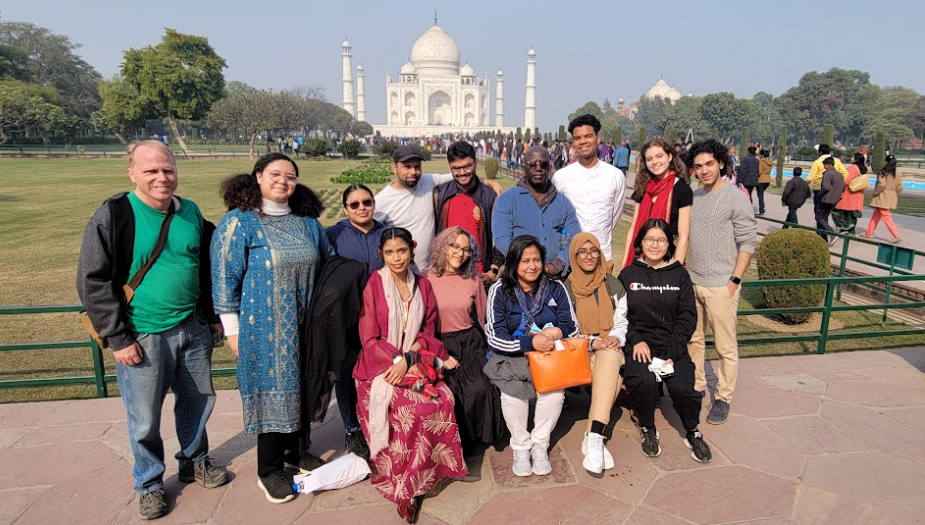
Dr. Phillip said: “This trip to India was an incredible opportunity for us to project the capabilities of CUNY and CUNY CREST Institute faculty and CUNY students on the international stage on such a critical issue for India. The research project is also helping us to train the next generation of STEM academics and professionals both in the United States and in India.”
Prof. Sen noted “Through the work on our NSF IRES project in India, we have made the world a much smaller place and have given our CUNY students firsthand experience of the scientific, and geopolitical issues surrounding air pollution and climate change.”
Dr vant-Hull stated that “Working with our students in India was an incredible experience, and they are eager to begin analysis of data from places that are now embedded in their memories forever. Bringing their multiple skills and viewpoints together to create documentation and publications will be rewarding for all involved. I also look forward to engaging the talents of the many Indian students we have formed relationships with, and strengthening the bonds with faculty from compelling institutions like SNDT Women’s College and the Indian Institutes of Technology.”
Jake Ortiz, one of the BCC students on the trip who is also head of the BCC Biology Club indicated “this was one of the most memorable experiences of my life. I am so happy that BCC and other CUNY students have this opportunity to conduct research and to learn about the culture in India at the same time.”
The CUNY CREST Institute team is currently analyzing the air pollution and related data collected in Mumbai and Delhi and making necessary equipment design modifications for the second year of the project in January 2024.
Take a look at more pictures taken on the Trip to India!

